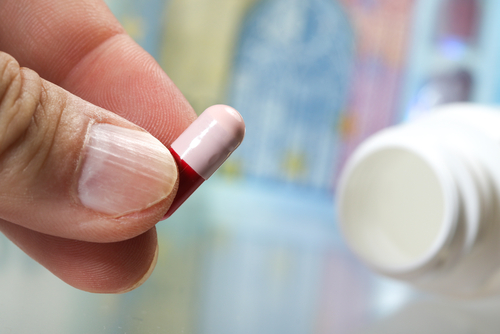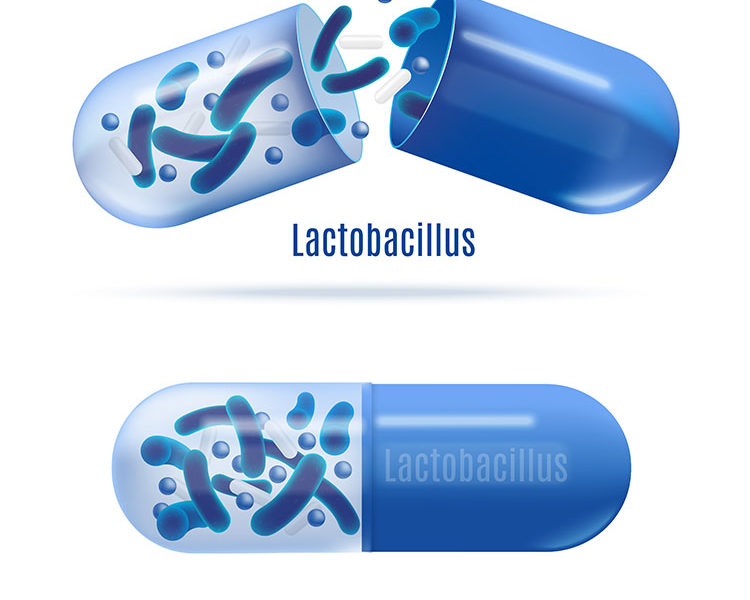
Can Probiotics Improve Immune Function?
The immune system is your body’s personal superhero. From tonsils to T-cells, it unites a disparate group of body parts with one essential purpose: to keep you healthy, no matter what. But it can’t do it by itself. There are all sorts of things you can do—and not do—to keep it working effectively from one flu season to the next. Everything from getting a good night’s sleep to avoiding cigarettes and keeping alcohol to a minimum can help your immune system work hard on your behalf. Now, you can add probiotic supplements to the list of immune system boosters.
The link between your gut and your immune system
To get how probiotics affect your immune function, you first need to understand the relationship between the gastrointestinal tract and your immune health. In the last few years, scientists at the best research universities in the world have begun to figure out how bacteria in the gut impacts the immune system and your overall wellness. It turns out that much of the immune system is actually in the GI tract. There are cells in the intestines that secrete antibodies into your bloodstream, which help your body fight different illnesses and ailments. It turns out that the immune system is all about balance. If your body fights off too many “bad” cells, it can trigger a negative bodily response that can potentially cause other health complications. However, if it doesn’t fight off enough, you can become seriously ill. Your gut is all about balance, too. This balance is between “good” bacteria and “bad” bacteria, trillions of which reside in your intestines. Some of these bacteria help you digest food, breaking it down into essential nutrients that your body can use as fuel. Other types of bacteria trigger an immune response, which could lead to the release of antibodies that we mentioned earlier. Scientists don’t yet understand exactly how these bacteria work together to keep you healthy, or why certain types of bacteria are more prevalent than others. What they do know is that when the balance is off, people (and animal test subjects like mice) get sick.

How probiotics might improve immune function
There are all sorts of things that can throw the balance of “good” and “bad” bacteria in your intestines out of whack. Something as simple as a week-long course of antibiotics can devastate a bacteria colony that’s been thriving in your body for decades. And that, in turn, can give you anything from diarrhea to chronic headaches, skin problems, the sniffles or worse. Some researchers theorize that an imbalance in the gut microbiome could be a cause of irritable bowel syndrome. It’s also been linked to an increase in depression or anxiety, multiple sclerosis flares and chronic kidney disease. While they’re not sure how it happens, all this research points to rebalancing the microbiome as a potential solution. And, in some small studies, using probiotics to do just that has resulted in a decrease of symptoms.

Should you try probiotics?
There are many reasons to try probiotics. While you should always consult your doctor before making any major changes to your daily routine, including your diet, probiotics have been shown to be safe for the general population. However, they aren’t recommended for the critically ill. Because probiotics simply replace the bacteria in your gut, probiotic supplements are a relatively mild treatment option. How do they work? It’s simple. They release billions of active bacteria directly into intestines. There are many different types of bacteria, and that’s reflected in the range of probiotic supplements available. Depending on the type of illness or the symptoms you’re struggling with, some bacteria species might be more effective than others. Each dose of probiotic typically contains between 1 and 10 billion active bacteria. To maintain the balance these supplements recreate in your intestines, you need to keep taking them. But they are an easier treatment for this imbalance in your GI system. Other treatments like a fecal transplant are far more invasive. What happens when the imbalance is treated? In many subjects, it’s health—or, at the very least, an improvement in symptoms. Rebalancing the gut microbiome decreases inflammation, which is one of many different types of immune responses. Inflammation is at the heart of a lot of diseases, including inflammatory bowel diseases like ulcerative colitis and Crohn’s disease. Decrease the inflammation with a little help from a daily probiotic supplement, and you might just restore your immune system to full working order.




